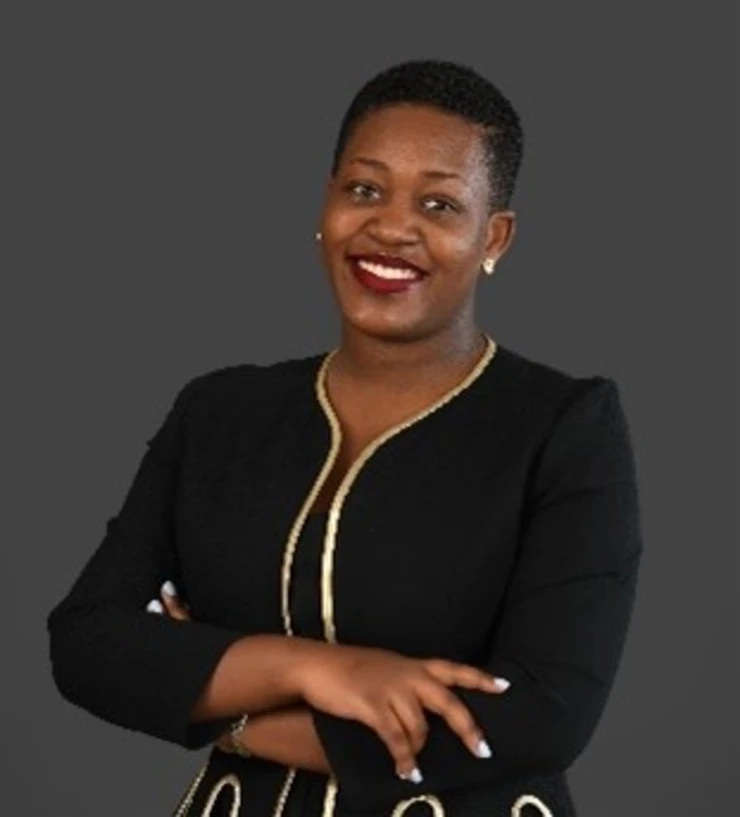Internship postcard series: Grace Nahurira Mutabazi in Uganda

MPP Student: Grace Nahurira Mutabazi
Where: Kampala, Uganda
Organization: Foundation for Human Rights Initiative (FHRI)
Reflections from My FHRI Internship

This past summer, I had the privilege of interning with the Foundation for Human Rights Initiative (FHRI). FHRI is a leading non-governmental organization dedicated to promoting human rights, democratic governance, and the rule of law throughout Uganda. My internship provided invaluable insights into human rights advocacy and public policy, offering opportunities to engage with diverse projects that expanded my understanding of the sector and clarified my career aspirations.
Alternative Financing for Non-Profit Organizations (NPOs)
A major highlight of my internship was leading the research and publication of a comprehensive report on alternative financing models for Non-Profit Organizations (NPOs) in Uganda. NPOs are often constrained by traditional funding streams, but this project unearthed innovative and viable alternatives to ensure sustainability. Among these were microfinancing models, where organizations leverage partnerships with microfinance institutions to facilitate small-scale funding for projects, and microinsurance, designed to protect vulnerable populations and NPO assets from financial shocks. I also explored Islamic finance, which is grounded in the principles of economic justice and shared prosperity, offering untapped potential through instruments like Zakat and Waqf. Other models included venture philanthropy, which combines financial investment with non-financial support such as mentorship and strategic advice to scale impact, and innovation funds, where development impact bonds drive social benefits alongside financial returns. The report also examined corporate social responsibility (CSR) initiatives, where private sector players contribute to social causes, and diaspora contributions, tapping into Ugandans abroad for financial and skill-based resources. In addition, I highlighted the potential of community foundations and endowment funds as sustainable, pooled resources for NPOs, and the rise of digital technologies such as subscription-based e-monitoring platforms for additional income streams. Each model was assessed for its applicability, strengths, and challenges, with actionable insights tailored to Uganda’s socio-economic context. This project served as a critical resource for stakeholders, offering a roadmap to diversify funding for both expressive NPOs—those advocating for rights or vulnerable populations—and service-providing organizations delivering essential services. Leading this research enhanced my analytical skills and provided a deeper understanding of innovative financial mechanisms that bridge gaps in public policy and sustainable development.
Media Practices and Election Reporting
I participated in a project aimed at strengthening media practices during election periods in Uganda. The initiative aimed to bridge the gap between ideal standards of objective reporting and existing trends, with a focus on ensuring safety, understanding the relationship between the media and electoral architecture, and addressing concerns around foreign interference. The ultimate goal was to develop a tailored Ugandan solution led by the Uganda Parliamentary Forum on Media (UPFM), the Uganda Journalists Association (UJA), and FHRI. My contributions included engaging with journalists, editors, and media house owners in specialized training programs and participating in public outreach activities that advocated for objective journalism as a foundation for informed citizenship. Representing FHRI, I collaborated with UPFM and UJA members to translate the overarching vision into practical action plans. I took on the responsibility of revising the original proposal to align with donor expectations, ensuring team consensus and readiness to present each phase effectively. This experience sharpened my strategic thinking, collaborative skills, and appreciation for the critical role of media in fostering democratic engagement.

Learning from the Ground Up
A standout experience was a visit to Naguru Remand Home, where I engaged with juvenile detainees to discuss their rights, the court process, and their responsibilities. Our activities included: conducting awareness sessions on children’s rights and court procedures, providing donations of essential supplies such as soap and educational materials and documenting challenges faced by juveniles, including delayed case handling and limited family support. This visit highlighted systemic issues in Uganda’s juvenile justice system, including delayed case handling and limited legal awareness among the children and inspired recommendations for improving access to legal aid and translation services. Another notable experience was attending the FIDA-Uganda National Gender Forum, which deepened my understanding of gender and rights issues through the exploration of gender norms and their impact on domestic abuse survivors as well as strategies to create inclusive and safe spaces for marginalized groups. This engagement deepened my understanding of intersectional advocacy and the importance of addressing gender disparities. These two f ield engagements underscored the importance of practical interventions and collaborative approaches in addressing systemic challenges.
Implementing Organizational Improvements
During my internship, I also contributed to enhancing FHRI’s operational efficiency. Drawing from my experience with lean methodologies, I proposed improvements in workflow management within the Research, Lobbying, and Advocacy division. While modest in scope, these recommendations aimed to streamline internal processes and better align project outputs with organizational goals.
Takeaways for the Future
My time at FHRI offered valuable lessons about the realities of human rights advocacy and illuminated the multidisciplinary nature of the work. While I initially hoped to work in the Legal Aid department, my placement in Research and Advocacy revealed the dedication, compassion, and resilience required to advance human rights. This experience reshaped my passion, steering it toward policy implementation and compliance management rather than direct advocacy. It reinforced my belief in systemic solutions and sustainable interventions as essential to meaningful change. My internship deepened my understanding of human rights work in Uganda and inspired me to explore innovative approaches to governance and development challenges. I am profoundly grateful to FHRI for the opportunity to contribute to its mission. This internship was not just another academic requirement ticked off but a shaper of my career aspirations and solidifier of my resolve to champion impactful development through contextualized policy interventions.
About the Author

Grace Nahurira Mutabazi is a corporate and commercial lawyer with five years’ private-sector experience in Uganda’s fast-moving consumer goods industry. Currently, she is pursuing her Master’s degree in Public Policy at the University of Erfurt. She can be reached via email at gracenahurira@gmail.com.
~ The views represented in this blog post do not necessarily represent those of the Brandt School. ~